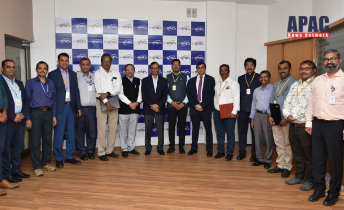ISRO Signs 75 Technology Transfer Agreements With Private Firms
India’s space sector has taken a major step forward as ISRO, IN-SPACe, and NSIL recently signed 75 Technology Transfer Agreements (TTAs) with non-governmental entities (NGEs). This is part of India’s ongoing space reforms to encourage more private sector participation in space activities.
Purpose of TTAs
The purpose of these TTAs is to allow private companies to access ISRO’s space technologies. These technologies, developed for space missions, can be applied to a wide range of areas like agriculture, energy, infrastructure, defense, telecommunications, and cybersecurity. The goal is to use space technology to solve real-world problems and drive commercial innovation.
The purpose of these TTAs is to allow private companies to access ISRO’s space technologies. These technologies, developed for space missions, can be applied to a wide range of areas like agriculture, energy, infrastructure, defense, telecommunications, and cybersecurity. The goal is to use space technology to solve real-world problems and drive commercial innovation.
Key Entities Involved
- ISRO (Indian Space Research Organisation): India’s national space agency, responsible for space research, exploration, and satellite missions.
- IN-SPACe (Indian National Space Promotion and Authorization Center): A government agency created to promote and help the private sector participate in space activities.
- NSIL (NewSpace India Limited): This is ISRO’s commercial arm, which helps transfer space technologies to private companies and promotes India’s space economy.
Why are these Collaborations Important?
The signing of these 75 TTAs marks a strategic shift in India’s space policy. After recent reforms, more collaborations between the government and private companies show a growing trust in the private sector to contribute to space technology innovation. These agreements will help create new commercial opportunities while also benefiting society by applying space technology to everyday needs.
The signing of these 75 TTAs marks a strategic shift in India’s space policy. After recent reforms, more collaborations between the government and private companies show a growing trust in the private sector to contribute to space technology innovation. These agreements will help create new commercial opportunities while also benefiting society by applying space technology to everyday needs.
Leadership Perspective
Pawan Goenka, the chairman of IN-SPACe, emphasized the importance of these 75 agreements. He said they will help private firms use space technologies in new and innovative ways. This collaboration is essential for building a strong space economy in India and addressing important societal needs.
By signing these Technology Transfer Agreements, ISRO, IN-SPACe, and NSIL aim to create a thriving ecosystem that supports commercial ventures and brings benefits to society. These agreements are expected to boost innovation in various industries and help India become a leader in the global space market.
Pawan Goenka, the chairman of IN-SPACe, emphasized the importance of these 75 agreements. He said they will help private firms use space technologies in new and innovative ways. This collaboration is essential for building a strong space economy in India and addressing important societal needs.
By signing these Technology Transfer Agreements, ISRO, IN-SPACe, and NSIL aim to create a thriving ecosystem that supports commercial ventures and brings benefits to society. These agreements are expected to boost innovation in various industries and help India become a leader in the global space market.




Comments
Post a Comment